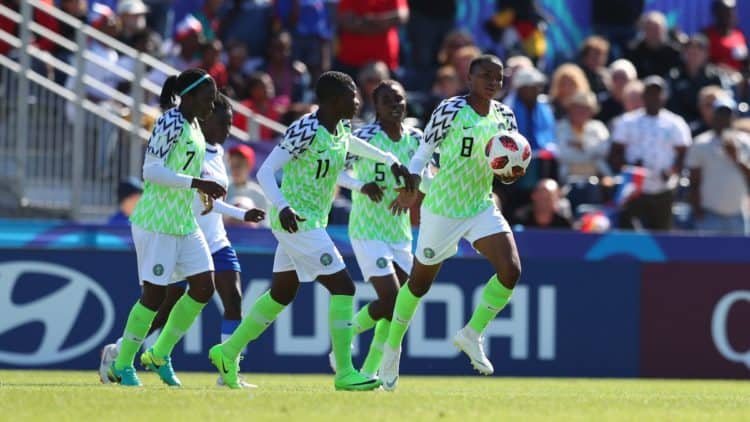Oyo State Government Approves ₦110 Million for Super Falconets’ Crucial World Cup Qualifier Against Rwanda
In a significant boost to Nigerian women’s football, the Oyo State Government has approved ₦110 million to support the Super Falconets’ participation in their 2026 FIFA U-20 Women’s World Cup qualifier against Rwanda. The funding, announced on September 10, 2025, covers logistics, training camps, and travel expenses for the nine-time African champions as they aim to secure a spot in the global tournament.
The Approval and Its Immediate Impact
Governor Seyi Makinde’s administration greenlit the allocation during a state executive council meeting, emphasizing the team’s role in promoting youth development and national pride. The Super Falconets, Nigeria’s U-20 women’s national team, will host Rwanda in a two-legged tie: the first leg on September 13 at the MKO Abiola National Stadium in Abuja, followed by the return on September 17 in Kigali.
The funds address critical needs like player stipends, medical support, and equipment, ensuring the team travels prepared. Oyo State’s Commissioner for Youth and Sports, Wasiu Olatunbosun, hailed the decision as a “testament to our commitment to empowering female athletes,” noting the team’s recent dominance in African qualifiers.
This support comes at a pivotal time, with the Falconets seeking to rebound from a disappointing 2024 U-20 World Cup exit and build toward the 2026 edition in Colombia.
Background on the Super Falconets and the Qualifier Stakes
The Super Falconets, under coach Chris Danjuma, have a storied history, winning seven straight U-20 African titles. Their path to the World Cup has seen them top Group B in the African qualifiers with convincing wins over Burkina Faso and Tanzania. Rwanda, a rising force in East African football, poses a tactical challenge with their speed and organization, but Nigeria’s experience—boasting talents like Esther Onyenezide and Chiamaka Okoro—gives them an edge.
The qualifier’s first leg in Abuja is expected to draw massive crowds, with the Nigerian Football Federation (NFF) partnering with states like Oyo for mobilization. Success here could propel the Falconets to their eighth World Cup appearance, inspiring a new generation amid Nigeria’s push for gender equity in sports.
Oyo State’s involvement reflects a broader trend: Since Makinde’s 2019 election, the administration has invested over ₦500 million in sports, including renovations to the Lekan Salami Stadium and youth academies, fostering talents who often feed into national teams.
Official Statements and Broader Support
Governor Makinde tweeted post-approval: “Football unites us, and our Super Falconets deserve every support to shine on the world stage. Oyo State stands with you!” The NFF President, Ibrahim Gusau, expressed gratitude, calling the funding “a game-changer” for preparations.
This isn’t isolated—other states like Lagos and Delta have pledged similar backing, while corporate sponsors like Pepsi and Bet9ja are chipping in for kits and promotions. The move aligns with President Bola Tinubu’s administration’s focus on sports as a tool for national unity and economic diversification.
Public Reactions and Fan Excitement
Social media erupted with praise for Oyo’s gesture, with fans hailing Makinde as a “sports governor.” Posts on X trended #SupportFalconets, with users sharing memes of the team in action and calls for more female empowerment. One fan wrote: “From Oyo to the world—let’s go Falconets! This funding will make the difference.”
Critics, however, urged transparency in fund usage, referencing past mismanagement in Nigerian sports. Overall, the sentiment is optimistic, with ticket sales for the Abuja match surging.
Implications for Nigerian Sports and Youth Development
For Oyo residents and Nigerians broadly, this approval signals investment in grassroots sports, potentially reducing youth unemployment through athletic opportunities. Women’s football, often underfunded compared to the men’s Super Eagles, gains visibility, encouraging female participation amid a push for 30% gender representation in national programs.
Economically, successful qualifiers boost tourism and sponsorships, contributing to Nigeria’s $1.5 billion sports industry. Politically, it enhances Makinde’s profile ahead of 2026 elections, showcasing proactive governance. For U.S. audiences with ties to Nigeria—via diaspora or soccer exchanges—this highlights Africa’s rising women’s game, paralleling the growth of the NWSL and inspiring cross-continental collaborations.
Conclusion: A Step Toward Global Glory
Oyo State’s ₦110 million approval for the Super Falconets’ World Cup qualifier against Rwanda is more than financial aid—it’s a vote of confidence in Nigeria’s football future. As the first leg approaches, the team heads into battle bolstered and united.
With Rwanda awaiting, victory seems within reach, paving the way for another World Cup adventure. For the Falconets, this support from home could be the spark that reignites their legacy on the international stage.
